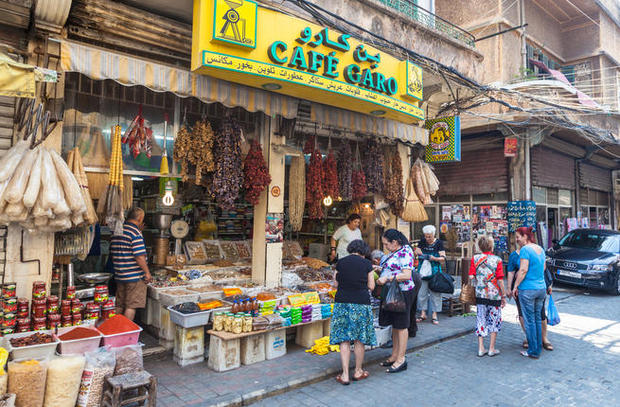jassemajaka@gmail.com
Lebanon: Traders accused of over-inflating food prices
Consumer and labor groups say they have observed a surge in food prices before the beginning of Ramadan, claiming that the prices of some goods have doubled.
But the claims were dismissed by the Economy Ministry, which called them arbitrary and inaccurate.
“These statements are false and we all know that the Lebanese market is full of food products because of the great drop in exports caused by the closure of land routes following the Syrian crisis,” said Jassem Ajaka, economics affairs adviser to the economy minister.
“So there is no way to witness a surge in prices because we have all kinds of products in the market and at large quantities,” he added.
The holy month of Ramadan, which began Thursday, is a time when Lebanese food markets normally witness major price hikes because consumers tend to buy food in larger quantities.
Consumer groups suspect that food importers inflate prices to boost their profits while manipulating food supplies.
“We started monitoring prices two weeks prior toRamadan and we focused mostly on fruits, vegetables and meat,” said Zouhair Berro, president of the Lebanese Consumers Association. “We found that chicken prices have increased by 28 percent while prices of vegetables have gone up by between 50 percent and 100 percent,” he added.
Berro argued that despite the high availability of all kinds of food products in the market, merchants were increasing their prices to compensate for their lack of exports. “Merchants cannot export their products as they used to do before, so they tend to increase their prices to make up for their losses,” he said.
Lebanese food exports have witnessed a major downturn over the past few months due to the closure of the Nassib border crossing betweenJordan and Syria.
Nassib was the last functioning crossing between Jordan and Syria, and was vital for the transportation of goods from Lebanon and Syria to Jordan and the Gulf states.
Berro said that he attended a meeting at theEconomy Ministry aimed at discussing with merchants the need to keep prices under control during Ramadan.
“But the meeting turned into a nagging session whereby merchants started complaining about their situation following the closure of Nassib border crossing and the drop in their exports,” he said.
“Merchants claimed that they would not increase prices at all, but I believe that this is not the case,” he said. “Prices have increased because of a lack of proper control by the Economy Ministry.”
TheGeneral Labor Confederation issued a statement Thursday saying that food prices have increased and merchants were taking advantage of Ramadan to increase their profits.
“We call upon the Economy Ministry to take the necessary measures to prevent the hike in prices, especially now that the Lebanese market has an excess quantity of food products,” it said.
Berro said that one of the reasons behind the increase in prices is the reluctance of the Economy Ministry to control the total profits of wholesalers, distributers and retailers, which should not exceed 30 percent. “Unfortunately, their profits today exceed 100 percent,” he said.
He also attributed the increase in prices to the absence of competition law, which would prevent monopolies. “Monopoly exists in all sectors and that’s what causes high prices in Lebanon compared to the rest of the region,” he said.
“It is impossible not to be able to find a certain food product in the market nowadays, so if I ask about an item in any shop and I do not find it, then I will automatically accuse the merchant of being a monopolizer,” he said.
Ajaka dismissed Berro’s comments. “Why does he always criticize our work while he never sends any complaints to the Economy Ministry?” he asked. “If his accusations are real, then let him send complaints and the Economy Ministry will solve them,” he said.
Ajaka added that the Economy Ministry has 100 inspectors deployed in areas where most people fast, such as in Beirut’s southern suburbs and Cola.
“We ordered them to focus mostly on monitoring prices of food products this month,” he said.
“We also have a strategy whereby we do not inform inspectors about the areas they should visit ahead of time, so we can avoid any conspiracies between them and merchants,” he added.



